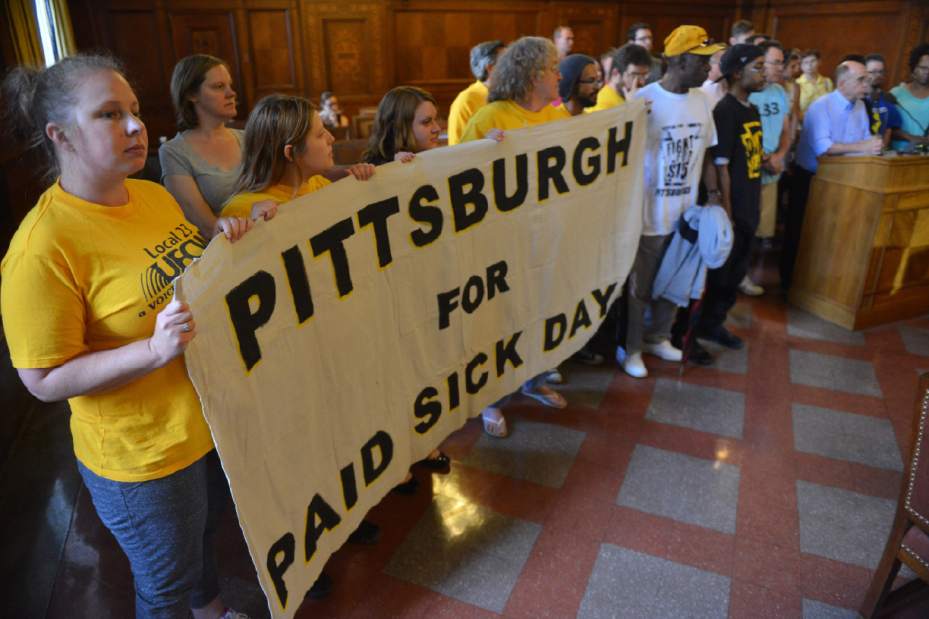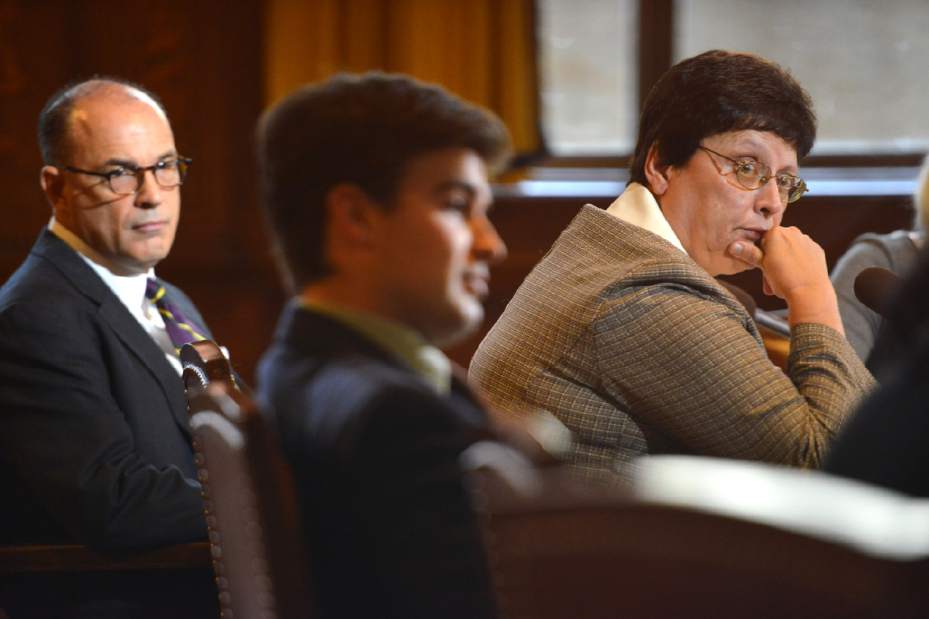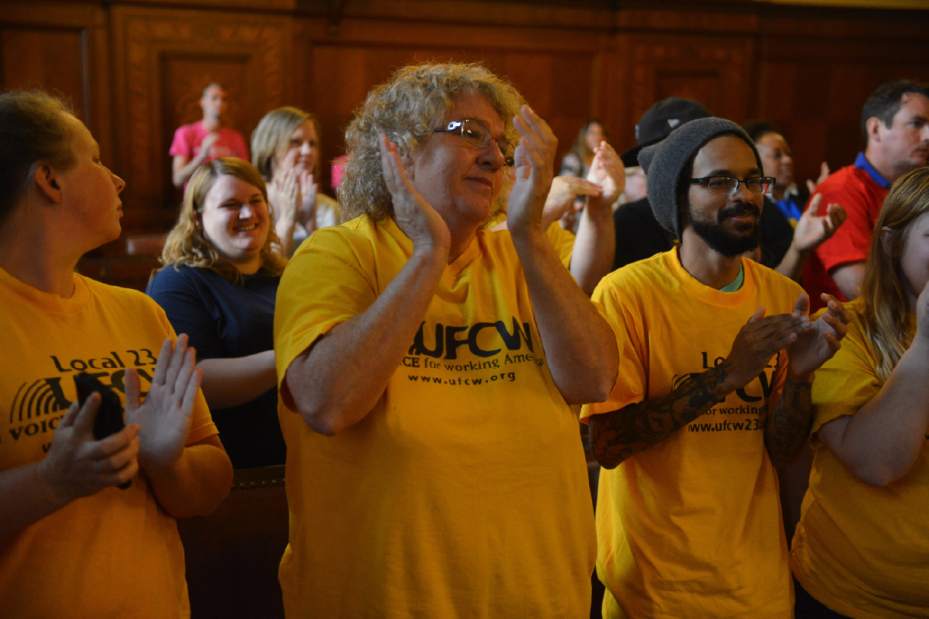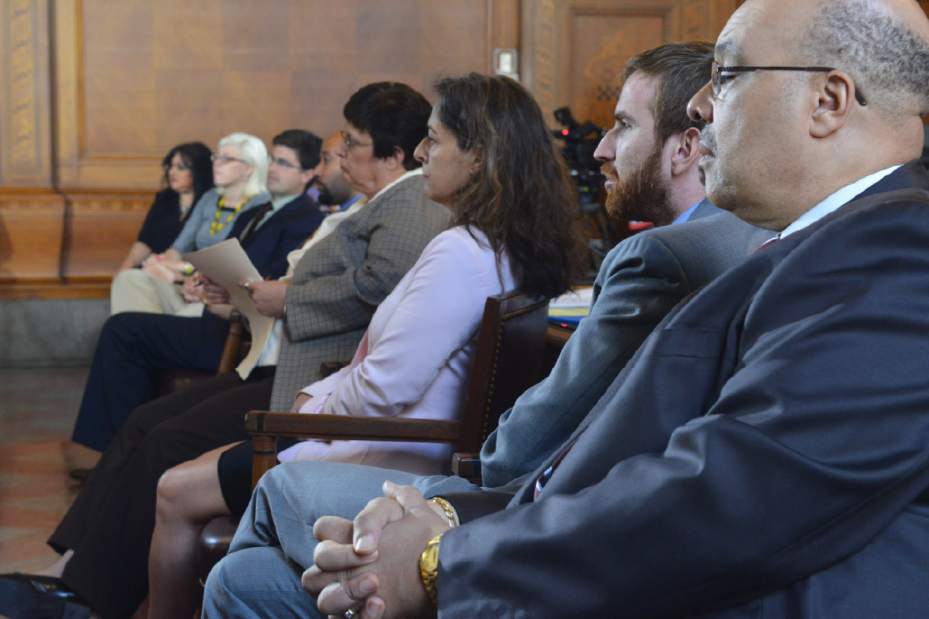Pittsburgh City Council approves ordinance requiring paid sick leave
Pittsburgh City Council on Monday approved a union-backed ordinance requiring city employers to give employees paid sick leave, despite a Law Department warning that it could be struck down in court.
Business owners have promised to file a lawsuit challenging the legislation as an example of legislative overreach that would allow council members to override decisions owners make about how to run their businesses.
“The only way you can affect the outcome (of the ordinance) is through a legal challenge, and I fully expect a legal challenge will be filed,” said Kevin Joyce, proprietor of The Carlton restaurant, Downtown.
Under the bill sponsored by Councilman Corey O'Connor, employers with 15 or more employees would be required to offer them up to five paid sick days a year. Those with fewer than 15 must offer three unpaid days off. Employees would accrue one hour of sick time for every 35 hours worked. Seasonal employees and state and federal government workers are exempt. Employers who violate the bill would be fined up to $100 for each offense. The bill doesn't specify how many employers would be subject to the rules, but census figures indicate there are roughly 24,605 businesses in Pittsburgh.
The ordinance passed 7-1 with Councilwoman Darlene Harris of Spring Hill abstaining. Bill proponents, many wearing shirts with labor union logos, applauded its passage in the packed council chamber.
Councilman R. Daniel Lavelle, who represents Downtown and the Hill District, voted against the ordinance, citing its impact on small businesses. Mayor Bill Peduto has promised to sign it. Once signed, it would take effect in 90 days, but a judge could delay its implementation indefinitely if there's a legal challenge.
Harris said she abstained after receiving notice from the Law Department that the ordinance could be overturned in court.
She said the department cited state law governing cities with home rule charters, such as Pittsburgh, that prohibits them from determining “duties, responsibilities or requirements placed upon businesses, occupations and employers.”
In 2009, the Pennsylvania Supreme Court cited that provision when it overturned a city ordinance requiring building owners who switched maintenance companies to retain for 180 days employees who lost their jobs.
Proponents of the ordinance said the council has the authority to pass legislation that protects the health and safety of residents. But the Law Department determined that applies only to municipalities with their own boards of health, Harris said.
“If this does not survive a legal challenge, it will be a costly mistake that the taxpayers will have to fund,” she said.
About 49,000 people have private sector jobs in Pittsburgh that don't offer paid sick leave, according to a survey by Women's Policy Research, a Washington nonprofit that focuses on women's issues.
O'Connor said sick employees who go to work because they're afraid of being fired spread illness, hurting productivity.
But Joyce said the legislation caters to the Service Employees International Union, which pushed for its passage.
Since 2013, SEIU-affiliated political action committees have donated money to the campaigns of every council member except Councilman Ricky Burgess, according to campaign finance reports.
SEIU PACs donated $500 to Harris on May 19; $2,000 to Council President Bruce Kraus on March 24; $3,000 to O'Connor's campaign on May 7; and a total of $3,500 to Councilwoman Deb Gross spread over three donations in April and May. Each candidate is up for re-election this year. Each, except for Kraus, faced an opponent in the May 19 primary.
Council members said donations did not influence their votes.
“That certainly wasn't the motivation,” O'Connor said, adding that business owners contribute regularly to his campaign.
Sam Williamson, Western Pennsylvania District director for SEIU 32BJ, said more than 20 organizations supported the bill and that 18 cities and three states — Massachusetts, Connecticut and California — have paid sick day requirements.
“I'd say council members are responding to a national movement that addresses a real problem,” he said.
Business owners questioned the speed — about three weeks — with which council acted on the legislation. They urged members to delay the final vote, saying the ordinance would strain small businesses financially.
John Graf, president and CEO of the Priory Hospitality Group, which owns the Priory Hotel on the North Side, said council shouldn't have the authority to force mandates on private business. Graf is vice chairman of the Pennsylvania Restaurant & Lodging Association, a statewide hospitality industry trade association.
“They have a genuine fear of how this legislation is going to harm their ability to run their businesses or keep their businesses afloat,” he said.
Bob Bauder is a staff writer for Trib Total Media. He can be reached at 412-765-2312.




